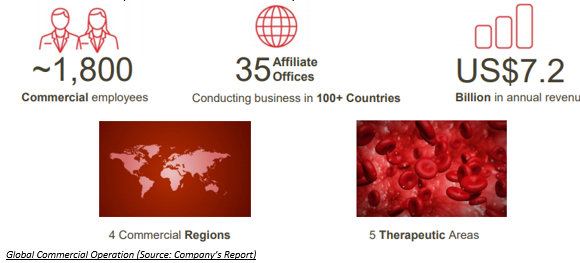How to Select the Best Stock?
Once you finally decided to start investing, the next step is to make the selection over a variety of stocks. The selection of stock depends on the number of factors such as level of risk, age of investor and objective of an investor. Let us discuss a few factors which should be taken into consideration while selecting the best stocks.
Selecting a Stock According to The Personality
The personality plays a great role while selecting a stock. For instance, the 23 old guy who plays video games has a dynamic mind and aggressive attitude can take more risk and invest into high growth stocks which have a great amount of risk attached to them. On the Other hand, a 65-year old would like to think things twice before making a decision and would want to earn a steady income over a period of time. One must understand that the stocks have different levels of volatility and velocity of price movement.
Keep it Simple
Whatever strategy you decide over the selection of stocks âKeep It Simpleâ. Start out trading in one stock initially. The investor should first watch, learn and study one stock, as each stock has its own characteristics and quality. While trading in one stock, the investor should also try to learn the behaviour of other stocks in which he is planning to invest in. It is always better to assume a measured amount of risk instead of investing directly in many stocks at a time.
Invest in Dominating Industries
There may be a chance that the same companies would come up in the different portfolios. There is a reason why this happens, and it is just because a few companies dominate their respective industries, these companies have a strong track record of good earnings and have a possibility of coming out with innovation for their customers.
Let us discuss two stocks from different sectors i.e. Commonwealth Bank of Australia from the Financial Sector and CSL Limited from the Healthcare sector.
CSL Limited (ASX: CSL)
CSL Limited is a leading global biotech company. The company manufactures and delivers medicine that saves lives and protects public health. The company has operations in more than 35 countries and has approximately 25,000 employees across the globe.
Research & Development (R&D) Briefing Presentation
On 4 December 2019, the company has announced the research and development investor briefing presentation; a few highlights from the presentation are as follows:
- The company has advanced its R&D pipeline and capabilities to deliver a highly differentiated product portfolio mix;
- The Phase Three clinical program (CSL112) targets for reducing early recurrent cardiovascular events in heart attack survivors;
- The first monoclonal antibody (CSL311), simultaneously target three cell-signalling cytokines, that are responsible for the immune response that causes asthma;
Change in Substantial Holding
On 2 December 2019, the company has announced to the change the substantial holding of Blackrock Group with 27,353,205 ordinary shares or 6.02 per cent voting power. The change came into effect from 28 November 2019.
Change of Directorâs Interest
On 21 November 2019, CSL has announced to change the interest of one of its director (Megan Clark) with effect from 25 October 2019. Mr Clark presently holds 2,360 ordinary shares (Direct), 588 Ordinary shares (Indirect) and 201 rights.
Results of Annual General Meeting
The company has declared the Annual General Meeting results held on 16 October 2019, below are the resolutions which are passed during the AGM:
- Resolution 1 - To re-elect Ms Marie McDonald as a Director
- Resolution 2 - To re-elect Dr Megan Clark AC as a Director
- Resolution 3 - Adoption of the Remuneration Report
- Resolution 4A - Approval of a Grant of Performance Share Units to Executive Director, Mr Paul Perreault
- Resolution 4B - Approval of a Grant of Performance Share Units to Executive Director, Professor Andrew Cuthbertson AO.
CSLâs Net Profit surged by 17 per cent during FY 2019
On 14 August the CSL has declared the financial results for the FY 2019, a few highlights from the results are as follows:
- Total Revenue of the company increased by 11 per cent to US$8,539 million compared to the corresponding period of previous year.
- The Net profit after tax of the company surged by 17 per cent to US$1,919 million against US$1,729 million in the year-ago period.
- Earnings per share of the company increased by 16 per cent to US$4.24
- Cash flow from operation of the company stood at US$1,644 million.
Outlook FY20
- The company experiences a strong demand for plasma and recombinant products.
- CSL expects FY20 NPAT to remain in between ~US$2,050 million to US$2,110 million.
- The revenue growth of the CSL to remain around 6 per cent.
- Seqirus is expected to deliver in line with prior guidance and benefit from product differentiation and process improvement
Stock Performance
The stock of CSL was trading at $278.700 on ASX on 9 December 2019, slipping down by 0.819 per cent (at AEST 2: 43 PM). The company has a market cap of $127.54 billion and approx. 453.87 million outstanding shares. The 52-week high and low value of the stock is at $287.310 and $173.330, respectively. The stock has generated a return of 39.90 per cent in the last six months and a return of 51.58 per cent on a year-to-date basis.
Commonwealth Bank of Australia (ASX: CBA)
Commonwealth Bank of Australia is one of the countryâs leading provider of integrated financial services. The company operates in Asia, New Zealand, North America and Europe. The bank is listed on the Australian Securities Exchange under the code CBA. Recently, on 27 November 2019, the company announced that its instalments Warrants - TAHIYE are to be terminated with effect from 28 November 2019.
Initial Substantial Holder
On 5 December the company has released a notice to become a substantial holder of Inghams Group Limited. The company holds 19,000,265 fully paid ordinary shares with 5.11 per cent voting power.
RBNZ announced final capital requirements for NZ Banks
On 5 December 2019, the company has released a note by the Reserve Bank of New Zealand on the capital requirement applicable for New Zealand Banks. The Reserve banks confirmed that, the risk-weighted assets (RWA) of internal ratings-based banks such as ASB Bank Limited will increase to ~90 per cent of that required under a standardized approach.
- For those banks which are considered systemically important, the Tier 1 capital requirement will increase to 16 per cent of the risk-weighted assets (RWA).
- The Tier 2 capital consist of 2 per cent of the minimum Total capital ratio of 18 per cent.
- The existing Tier 1 and Tier 2 contingent instruments will no longer be eligible under new capital criteria issued by RBNZ.
- The central bank has announced a 7-year transition period for banks to meet the requirements commencing from 1 July 2020.
- The company is in strong position to meet the new requirements issued by RBNZ.
- It is well noted that CBAâs Level 2 CET1 ratio as at 30 September 2019 was 10.6% and will not be affected by these requirements.
To know about transition in companyâs leadership board click here
Stock Performance
The stock of CBA was trading at $79.390 on ASX on 9 December 2019, with a rise of 0.506 per cent (at AEST 2:46 PM). The company has a market cap of $1.77 billion and approx. 139.83 billion outstanding shares. The 52-week high and low value of the stock is at $83.990 and $67.550, respectively. The stock has generated a return of 0.92 per cent in the last six months and a return of 11.30 per cent on a year-to-date basis.
Disclaimer
This website is a service of Kalkine Media Pty. Ltd. A.C.N. 629 651 672. The website has been prepared for informational purposes only and is not intended to be used as a complete source of information on any particular company. Kalkine Media does not in any way endorse or recommend individuals, products or services that may be discussed on this site. Our publications are NOT a solicitation or recommendation to buy, sell or hold. We are neither licensed nor qualified to provide investment advice.







